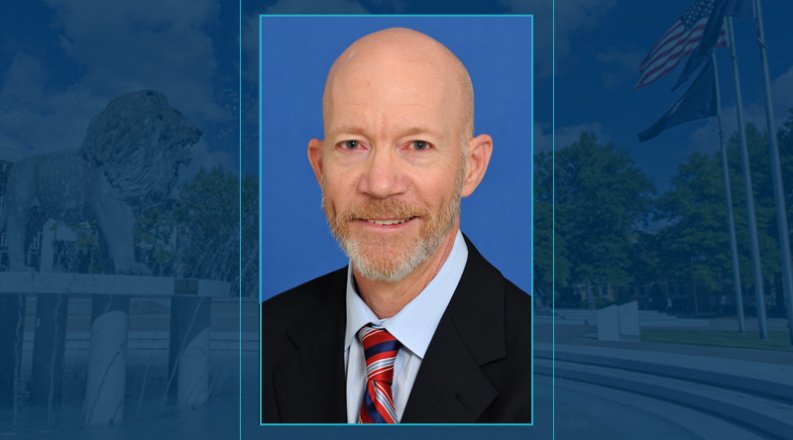After four decades of dedicated service to the field of Exercise Science, Dr. David Swain, a distinguished Professor at Old Dominion University (ODU) in Norfolk, Virginia, is set to retire at the end of this semester. His extensive career has been marked by groundbreaking research, influential publications, and a passion for promoting health through fitness.
Dr. Swain, who earned his Ph.D. in Physiology from the University of North Carolina Medical School in 1984, has been a driving force in the study of cardiovascular and metabolic responses to exercise. Notably, he originated the concept of oxygen consumption reserve (VO2 reserve) for exercise prescription, a groundbreaking contribution that has shaped exercise guidelines.
Throughout his 30.5 years at ODU and a total of 40 years in the field of exercise science, Dr. Swain's impact extended beyond research. As a university professor, he taught courses in exercise physiology, exercise prescription, exercise testing, and wellness. His teaching philosophy, marked by humor and personal anecdotes, aimed to humanize complex lessons and engage students.
Interestingly, Dr. Swain shared during an interview that he wasn't taught how to teach during his Ph.D. program, revealing his commitment to developing effective teaching methods. For each new lecture, he diligently writes a script to ensure the timing aligns with his engaging storytelling style.
One of his significant achievements includes authoring the American College of Sports Medicine's recommendations for cardiorespiratory exercise in 2011. Additionally, he served as the senior editor for ACSM's Resource Manual for Guidelines for Exercise Testing and Prescription, 7th edition.
His dedication to both teaching and research has not gone unnoticed. In 2006, Dr. Swain received Old Dominion University's highest teaching award, the University Professor designation. Furthermore, he held the position of Graduate Program Director for Exercise Science from 2010 through 2020.
Beyond academia, Dr. Swain's commitment to personal fitness served as a living example for his students. A former paratrooper in the U.S. Army, he set a Virginia state record in bench press in his 40s, cycled across the U.S. at 50, and conquered Mount Kilimanjaro at 62. Even at 69, he completed a 50-km trail race, showcasing resilience and dedication to an active lifestyle.
In a candid reflection on his illustrious career, Dr. David Swain shared captivating stories that transcend the boundaries of academia. Beyond the lecture halls and research labs, his journey unfolded as a tapestry of personal challenges, triumphs, and a relentless pursuit of knowledge.
One remarkable chapter in Dr. Swain's career unfolded during his attempt at an Appalachian Trail thru-hike. Fueled by a desire to merge his passion for hiking with scientific inquiry, he embarked on a study with his colleagues Laura (a former student) and Eddie Hill. They meticulously analyzed their heart rate and VO2 max on a treadmill, comparing it with the physiological demands of a 100-mile backpacking trip. Despite meticulous preparation, Dr. Swain opted out of the thru-hike, recognizing that the tight time frame of the summer break would compromise the enjoyment of the journey.
Another significant episode in his career involved a personal battle with prostate cancer, a diagnosis that coincided with his interest in the Norwegian foot March—a challenging 30k event at Purdue University. Undeterred by the diagnosis, Dr. Swain turned this adversity into an unconventional research study. Facing challenges with obtaining Institutional Review Board (IRB) approval, he remained steadfast, emphasizing ethical treatment of subjects. This resilience culminated in a study where he examined his VO2 max and other factors before and after surgery, demonstrating his commitment to advancing knowledge even in the face of personal health challenges.
The narrative of Dr. Swain's career also takes us to the heights of Mount Kilimanjaro, where his determination and resilience shone brightly. During his first attempt, hampered by lost luggage and illness, he fell short of the summit. Undeterred, he returned three months later, determined to conquer the highest peak in Africa. Even as sickness threatened to thwart his ascent, the guides, affectionately calling him "babu" (grandpa), witnessed Dr. Swain outpacing younger climbers on summit day, reaching the pinnacle despite the thin 50% oxygen levels.
Former students, reflecting on Dr. Swain's impact, share sentiments that echo the sentiment of Reuben Wright: "Dr. Swain was a coach, not just a committee chair. He explained and showed me the correct procedures for becoming a scholar and skilled researcher." Sherwin Miller's recollection of Dr. Swain's tough but impactful teaching style underscores the lasting lessons: "Just because you want a degree doesn’t mean you get one; you have to earn it." Rachel Cuninghame captures the essence of Dr. Swain's influence, stating, "His passion for the science of exercise stirred in me great curiosity and excitement."
As Dr. Swain prepares for retirement, his lecture, "Four Decades of Researching and Promoting Health through Fitness," promises to distill a lifetime of wisdom. His legacy is not only one of academic achievement but also a testament to the resilience, curiosity, and passion that have fueled an extraordinary career in Exercise Science.



